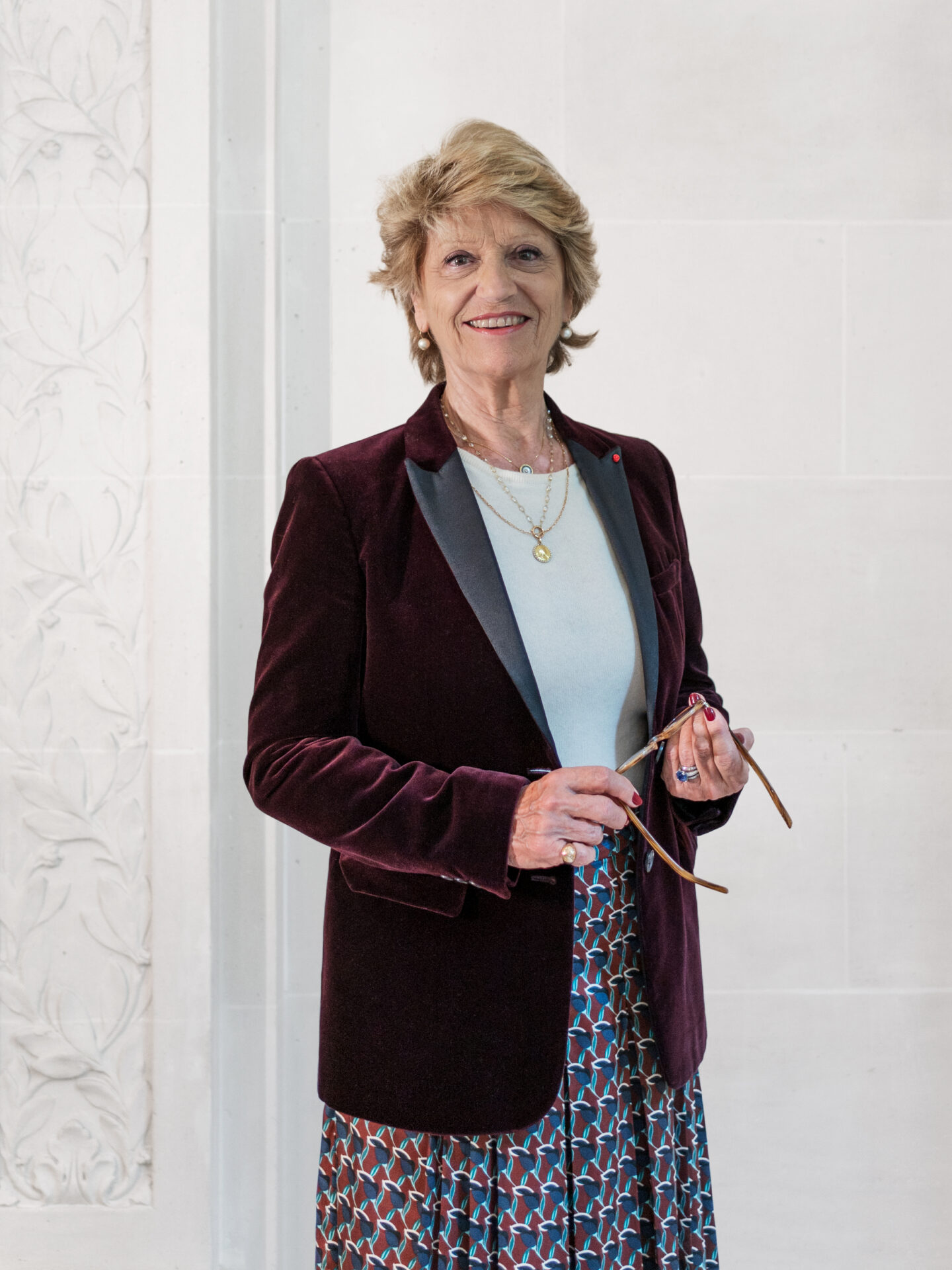By Catherine Paley-Vincent, Associate lawyer and Nathalie Boudet-Gizardin, Lawyer counsel
Is the prescription of hydroxychloroquine legal in France to treat patients with Covid-19?
Hydroxychloroquine, available in France for about 60 years and currently marketed under the name PLAQUENIL by the Sanofi Aventis laboratory, is a drug usually indicated in the treatment of certain joint diseases of inflammatory origin, autoimmune diseases or for prevention. lucites (allergies to the sun).
Promoted as a possible treatment for the coronavirus, in particular by Professor Didier Raoult, director of the Institut Hospitalo-Universitaire Méditerranée Infection in Marseille, the question of its prescription in France, without marketing authorization (AMM), arises with a particular acuity due to the current state of health emergency.
- Recall that up to the Decree of January 13, 2020, hydroxychloroquine was not subject to compulsory medical prescription and could therefore be dispensed by pharmacists without a prescription.
This is following an opinion issued by the National Agency for Food, Environmental and Occupational Health Safety (ANSES), the November 12 2019, at the request of the National Agency for Medicines and Health Products Safety (ANSM), that hydroxychloroquine " in all its forms "Was included, by Decree of January 13, 2020, on list II of poisonous substances, the delivery of which is subject to compulsory medical prescription, with possible renewal when the prescriber has not expressly prohibited it.
This inclusion on list II of poisonous substances was justified, for both ANSES and ANSM, by the fact that chloroquine, a substance in the same family as hydroxychloroquine, was already classified on this list II, due to 'genotoxic potential, which could be similar for hydroxychloroquine.
- Two months later, France moved to stage 3 of the COVID19 epidemic and a first research was carried out in France, from March 5 to 16, 2020, by the team of Professor Didier Raoult, who uses hydroxychloroquine in combination with an antibiotic, azithromycin, to treat twenty-six patients with COVID19, therefore off-label.
- It is in this context, that at the request of the General Directorate of Health, the High Council for Public Health (HCSP) issued, on March 23, 2020, an opinion on treatment recommendations in the management of covid-19.
In this opinion, the HCSP notably considered that “ These exploratory results must be considered with caution due to the small size of the study, partly including asymptomatic patients, the absence of a control arm, and the only virological endpoint (no clinical data). They do not allow a conclusion to be drawn on the clinical efficacy of hydroxychloroquine or of the hydroxychloroquine + azithromycin combination, but need to be confirmed (or denied) ».
He also added that “ there are currently no data to consider the off-protocol use of hydroxychloroquine for COVID-19 prophylaxis. Due to the very strong reservations about the use of hydroxychloroquine linked to the very low level of proof, all the necessary means must be mobilized to carry out demonstrative trials. »
Finally, the HCSP recommended that “ all prescribers take into account the very limited state of current knowledge and be aware of the commitment of their responsibility when prescribing drugs for off-label indications, outside the framework of clinical trials and the recommendations set out below [in his opinion] ”.
- In continuation of this notice, two decrees were successively published by the Ministry of Solidarity and Health, regulating the prescription, dispensing and administration of hydroxychloroquine for patients with COVID-19:
- By way of derogation from the provisions of the public health code relating to marketing authorizations, a Decree n ° 2020-314 of March 25, 2020 authorizes the prescription, dispensing and administration of hydroxychloroquine and the lopinavir / ritonavir combination " under the responsibility of a doctor to patients affected by covid-19, in the health establishments that take care of them, as well as, for further processing if their condition allows it and with the authorization of the initial prescriber, home ".
In this case, these drugs are supplied, purchased, used and paid for by health facilities.
This same decree specifies that the pharmaceutical specialty PLAQUENIL © and preparations based on hydroxychloroquine can only be dispensed by dispensing pharmacies within the framework of an initial prescription issued exclusively by specialists in rheumatology, internal medicine, dermatology and nephrology. , neurology or pediatrics or as part of a prescription renewal from any doctor.
Finally, this Decree of March 25, 2020 prohibits the export of specialties containing the lopinavir / ritonavir association or hydroxychloroquine, in order to guarantee the appropriate and continuous supply of patients on national territory, in town pharmacies as well as in hospitals. pharmacies for indoor use.
- The next day, a Decree n ° 2020-337 of March 26, 2020 came to substantially limit the effects of the decree published the day before, in that it specifies that the prescriptions of hydroxychloroquine and lopinavir / ritonavir " intervene, after collegial decision, in compliance with the recommendations of the High Council for Public Health and, in particular, indication for patients with oxygen-requiring pneumonia or organ failure ».
It confirms, moreover, that the use of hydroxychloroquine in town medicine must be limited,
en prohibiting its dispensing in dispensary pharmacies outside the indications of its marketing authorization.
- Very dissatisfied with these new provisions, the Syndicat des Médecins Aix et Région (SMAER) and health professionals, supported by the Federation of Doctors of France, asked the Council of State, in a request and an additional brief filed on 23 and March 26, 2020, to urge the Government to take measures in particular to authorize them to prescribe and administer hydroxychloroquine-based treatments to patients with COVID-19, both in town and in hospitals.
In an Order of March 28, 2020, made in summary, on Council of state rejected this request, in particular for the following reasons:
- first of all, " the studies available to date suffer from methodological shortcomings " and " these studies do not make it possible to conclude on the clinical efficacy of hydroxychloroquine. However, the European clinical trial "Discovery", the first results of which will be known in about ten days and which must include patients for whom the treatment is initiated sufficiently early to assess the impact of the molecule on the evolution of the disease. disease, will collect more significant results. »
- then, " if the use of this molecule is well documented, it can cause severe hypoglycaemia and lead to abnormalities or irregularities of the heartbeat that may be life-threatening and it presents significant risks in the event of drug interaction. Its administration, if it can be done by local doctors, thus supposes not only the respect of special precautions but also a specific follow-up of the patients, in particular on the cardiac plan.."
- finally, " given the hopes raised by the first results made public by the Marseille team, a sharp increase in sales of Plaquenil in community pharmacies was recorded, showing tensions in the supply of certain pharmacies and difficulties in obtaining obtain it for patients requiring this specialty in the indications of its marketing authorization."
In addition, the Council of State considered that the measures taken by the decrees of 25 and 26 March 2020, who are " falling within the scope of the provisions of Article L. 3131-15 of the Public Health Code and in accordance with the recommendations of the High Council for Public Health, in the absence of "data acquired from science" to date, are likely to change very quickly, in accordance with the declarations of the Minister of Solidarity and Health, in view of the first results of the European clinical trial. In these conditions, the choice of these measures cannot be viewed, in the state of the investigation, as seriously and manifestly illegal interference with the right to respect for life and the right to receive, subject to his free and informed consent, the treatment and care appropriate to his state of health, as assessed by the physician. »
- More recently still, the state Council canceled in summary proceedings, in a judgment of April 4, 2020, the Order of the Administrative Court of Guadeloupe of March 28, 2020, which had given an injunction to the CHU and the ARS of Guadeloupe to order, without delay, the two drugs (hydroxychloroquine + azithromycin) to treat the epidemic of COVID-19.
The Council of State considered, on the one hand, that the stocks were sufficient for their use in the extremely limited framework provided for by the decree of March 26, 2020, on the other hand, that the CHU cannot be blamed and at the ARS of Guadeloupe not to anticipate the expected results of clinical trials " shortly », Including the one started on April 1 by the University Hospital of Angers.
- For its part, the ANSM today calls on health professionals to be extremely careful, recalling in its communication of March 30, 2020, than :
- the use of PLAQUENIL (hydroxychloroquine) or KALETRA and its generic (lopinavir / ritonavir) for the management of patients with COVID-19 must be carried out as a priority in the context of ongoing clinical trials.
- the use of these drugs can be considered on an exceptional basis and only within the framework of a prescription and dispensation to hospitalized patients.
- under no circumstances should these drugs be used for self-medication, or on prescription from a city doctor, or self-prescription by a doctor for himself, for the treatment of COVID-19.
This position remains extremely controversial in the scientific and medical community, as the health and ethical issues raised by the off-label prescription of hydroxychloroquine, in emergency, to treat patients with COVID-19 are important.

Catherine Paley-Vincent
Partner
Recognized expert in health law, she intervenes in particular for the constitution and monitoring of structures between hospital and / or liberal health professionals, for the management of possible conflicts and their transactional, judicial or disciplinary consequences. The field of medical imaging is particularly familiar to him.
She advises pharmaceutical companies on medical devices, labeling and clinical trials.
She is regularly consulted on the application of ethics, in particular with regard to the regulation of professional orders of networks, advertising and the Internet used in the medical and veterinary world.

Nathalie Boudet-Gizardin
Counsel
She joined the firm the same year in the Civil and Health team of Catherine Paley-Vincent. She advises health professionals particularly in terms of:
Civil, disciplinary and criminal defense of health professionals, professional orders and medical and veterinary biology laboratories
Advice and assistance to health professionals to structure their activities, including within the framework of public / private cooperation, particularly in medical imaging
Support for healthcare professionals and innovative companies in the development of their e-health projects.





